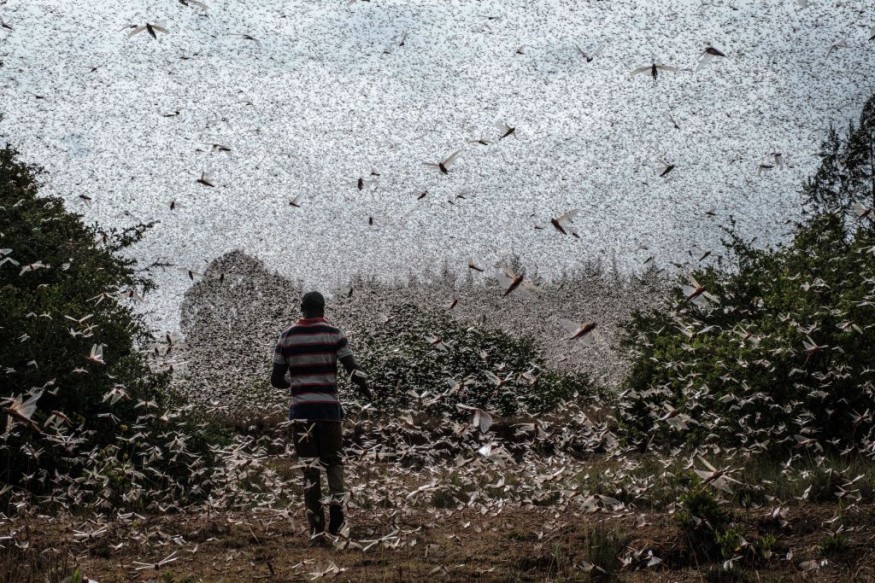
Widespread pest outbreaks will develop as a result of imbalances occurring in the ecosystem that is brought on by man-made climate change.
Man-Made Climate Change
The effects of man-made climate change are predicted to cause mayhem among insects all across the planet. The delicate connections they have with plants and other insect species may be thrown off by temperature changes, potentially leading to widespread pest outbreaks.
According to Brewer International, an insect pest epidemic is characterized by a significant and erratic population of insect pests. They take place when the pest population dramatically exceeds its level of general equilibrium and poses a threat to human objectives.
Insect populations and their interactions with the lifecycles of the plants they depend on are projected to be impacted by rising temperatures brought on by climate change, which might eventually result in the extinction of significant species.
According to Thomas Powell, a State University of New York assistant professor of biological sciences, climate change will have a variety of repercussions on insect populations and entire ecosystems. Powell is a co-author of the study.
Imbalance in Ecosystems
The scientists discovered that depending on how adaptable an insect species is to change, the balance between insect species and the predatory wasps that feed on them may be upset by climate change. Sadly for humans, the most resillient species are frequently pest species, like locusts or ips beetles, while the species that regulate them typically aren't as tough.
Powell stated that the ability of these tiny but significant wasps to shift their distributions in response to climate change or the decoupling of seasonal timing between parasites and their hosts could cause widespread outbreaks of pest insects that are normally ecologically controlled by these wasps.
Chain Reaction of Climate Change
In their research, the scientists looked at how two hawthorn fly populations were affected by temperature changes. In the 1850s, one group continued to consume hawthorn fruit while the other shifted to apples. Their reproductive cycles and parasitic wasps that feed on larvae of hawthorn flies were impacted by this change in food.
Hawthorn eaters were more resistant to temperature fluctuations, according to climate models run by the researchers. However, due to a lack of genetic variation, apple eaters started to drift away from the trees. The heat had little effect on parasitic wasp life cycles, which made them incompatible with hawthorn flies and other prey species.
These findings imply that parasitoid wasps, which are essential for managing insects that feed on plants, may be vulnerable as a result of climate change. Such alterations in the relationships between species may have broad ramifications. Finding the species most impacted is difficult since even subtle changes in food preferences can impair a species' ability to withstand temperature changes.
The Fittest
Powell claims that species that are already experiencing habitat loss, fragmentation, and changes in land use may have the toughest difficulty adapting to our fast-changing environment.
According to Alycia Lackey, a University of Louisville assistant professor of insect ecology, some species do better in warmer climates because they may be able to develop more quickly, produce more generations of offspring in a year, or have access to more food. Lackey is a co-author of the paper.
More adaptable to climate change will be species with extensive tolerances for fluctuations in temperature and those able to survive higher mean temperatures or greater heat waves.
Also Read : Robot Death Machine Battles Invasive Spotted Lanternflies by Scrubbing Off Eggs in Pittsburgh
Pest Outbreak
Numerous species may be harmed including some that are essential to the operation of our economy.
Lacky cited the fact that many pollinators, such as bees, butterflies, and moths, are critical to the health of our crops and the pleasure of our natural environments, and that climate change poses a grave threat to these species. On the other hand, numerous crop pests could fare better as a result of climate change, endangering agricultural production even more.
Limiting the rate of climate change, according to the scientists, is one strategy for reducing these effects on insects, Newsweek reports.
The study done by Powell, Lackey, and their team, has been recently published in the journal Ecology Letters.
Related Article : Invasive Insect Coconut Rhinoceros Beetle First Sighting Outside of Oahu Reported, Officials Wary of Larvae in Green Waste
© 2026 NatureWorldNews.com All rights reserved. Do not reproduce without permission.





